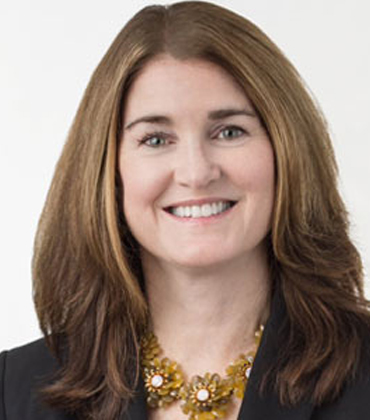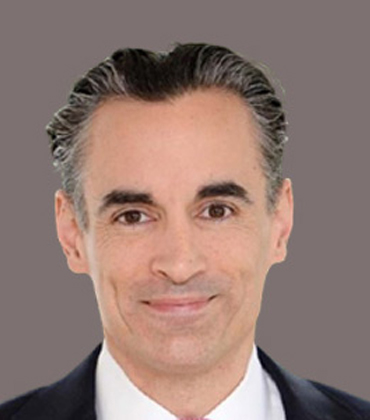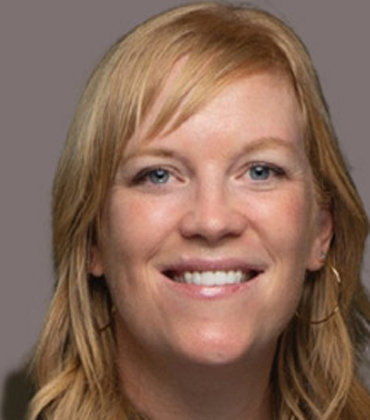THANK YOU FOR SUBSCRIBING
Maggie Madden has over 25 years of experience and focuses on helping companies improve cash flow, reduce DSO, cut bad debt, and increase sales. Chief Financial Officers’ primary concern is increasing cash flow, reducing days sales outstanding (DSO), and minimizing bad debt to optimize the business’s financial health. Leaving uncollected cash to age is risky as it affects borrowing base lending, increases operating costs, and heightens the risk of insolvency. While these challenges may seem daunting, a proven system—rooted in well-established processes—can significantly mitigate these issues. Several key changes can help you get paid faster, reduce bad debt, and minimize operational stress. For nearly 30 years, I have been helping businesses overhaul and turn around AP (accounts payable) and AR (accounts receivable) departments. With each new project, I find the same systemic issues. Employees show up each day wanting to do a good job but fail because they lack the process
Wishing for wealth should always be paired with the boon to preserve it—because if the former is granted, the latter becomes a necessity. A windfall of wealth, no matter how large, can easily be squandered if not handled well. With considerations like investment, financial, taxation and estate planning, trusted financial advisors must be roped in as fiduciaries for the newfound wealth. However, the ever-expanding scope of their service demands a more holistic wealth management approach, which is realistically possible through Wealth Inc. A renowned name in the world of fintech, the firm enables financial advisors to provide greater number of services at scale efficiently and economically through its wealth planning platform, Wealth.com. Specializing in estate planning, it empowers financial advisors and entities by modernizing the delivery of estate planning guidance to their clients. Wealth.com is the only tech-led, end-to-end estate planning platform built specifically for financial institutions and advisors. “Our platform uses technology to drive efficiency and repeatability without compromising quality or the bespoke nature of the financial advisory work,” says Danny Lohrfink, co-founder and CPO. Wealth.com stands out from the market in delivering a truly scalable experience for financial advisors. This focus on scalability is ingrained in the platform by its creators, including a CEO with a CTO background. They ensured that unlike traditional point solutions that operate in silos, Wealth.com is designed with integration and scale in mind. This design philosophy eliminates the inefficiencies of fragmented tech stacks—common when managing multiple platforms that don’t communicate with one another. Wealth.com avoids this pitfall by directly embedding an advisor’s existing systems through API integrations. When an advisor logs in for the first time, the dashboard is already populated with their entire business book. Eliminating inefficiencies and giving advisors a comprehensive, real-time view of their clients without lifting a finger. This frictionless onboarding process is a game-changer, positioning Wealth.com as a tech-forward, advisor-first platform built for the modern-day finance professionals. They can use the platform to serve clients across the net worth spectrum. Wealth.com offers a scalable solution that adapts to each client’s unique needs. Whether helping a mass affluent client draft their first will, evaluate the impact of relocation on inheritance and tax liability, or assist an ultra-high net worth client visualize an estate with Spousal Lifetime Access Trusts (SLATs), Grantor Retained Annuity Trusts (GRATs) and Irrevocable Life Insurance Trusts (ILITs).
PayPal Holdings, Inc. has become one of the world’s most recognized and trusted financial technology companies, playing a critical role in shaping the way people move and manage money online. Since its founding in 1998 and public listing in 2002, PayPal has grown from a startup solving online payment problems into a global platform that facilitates secure, fast and accessible financial transactions for consumers and businesses alike. Headquartered in San Jose, California, Alex Chriss, President & Chief Executive Officer PayPal operates in more than 200 countries and supports over 25 currencies. With over 426 million active accounts as of 2023, the company processed more than $1.5 trillion in total payment volume last year alone. Its mission is clear: to democratize financial services and give people greater control over how they spend, send and receive money—anytime, anywhere. A COMPLETE DIGITAL PAYMENTS ECOSYSTEM PayPal’s services begin with its core offering: a digital wallet that allows individuals to connect their bank accounts, debit or credit cards and store balances in one secure, easy-to-use app. With a few taps, users can send money to friends and family, pay for online purchases, or manage subscriptions and bills. The company also offers flexible payment options like “Buy Now, Pay Later,” including Pay in 4 and Pay Monthly. These tools allow users to break large purchases into manageable payments with no interest, making budgeting easier and increasing purchasing power. In addition, PayPal enables customers to buy, sell and hold cryptocurrencies like Bitcoin, Ethereum and Litecoin directly from their accounts, bridging traditional and emerging financial systems. Further expanding its role in personal finance, PayPal now offers a high-yield savings account with a competitive interest rate. Integrated into the PayPal app, this feature makes it easier for users to grow their money while keeping their finances in one place. For merchants and businesses, PayPal provides a powerful suite of tools. Businesses can accept payments online, in person and via mobile. The platform supports invoicing, recurring billing and customized checkout experiences, while also offering real-time analytics and fraud protection. Integration with major e-commerce platforms like Shopify, WooCommerce and BigCommerce makes it easy for merchants to scale and adapt to changing demands.

Paul Young, Chief Financial Officer, Liberty Bank − CT

Melissa Hall, Senior Vice President in Finance and Head of Global Tax, Assurant

Mack Wallace, VP, Product (Head of Product), MPOWER Financing

Pamela Pirone-Benson, Vice President, Estate Planning Specialist, Fidelity Investments

Sébastien Page, CFA®, Head of Global Multi-Asset and Chief Investment Officer, T. Rowe Price

Jeanne Krigbaum, Chief Wealth Planning Officer, Old National Bank

John Turner, VP, Investment Advisor Lending, Live Oak Bank
The estate planning industry has dramatically transformed in recent years, largely fueled by technological advancements that simplify and streamline the process. What was once an intricate, paperwork-heavy task requiring multiple legal professionals’ involvement has evolved into a more accessible, efficient, and cost-effective process. Platforms for digital estate planning are leading this change by allowing people to safeguard their assets and preserve their legacies for future generations. However, despite this progress, the sector is still navigating various challenges while embracing opportunities that allow it to evolve and better serve its users. Digital Transformation in Estate Planning The digital shift in estate planning has introduced a trend toward greater accessibility and automation, significantly altering how individuals create and manage their estate plans. Previously complex processes like drafting wills, trusts, and powers of attorney are now simplified with in
Accounting software is no longer just a tool for balancing books; it is a strategic asset transforming organizations' operations. Fremont, CA: In today's fast-paced digital economy, accounting software has evolved from a back-office tool into a strategic business asset. Businesses of all sizes increasingly rely on innovative, cloud-based, and AI-powered accounting solutions to enhance productivity, reduce human error, ensure compliance, and make data-driven decisions. The shift toward automation, integration, and real-time reporting is redefining the roles of finance professionals and transforming how organizations manage their financial operations. Mobile capabilities are improving. The flexibility is essential for today's remote and hybrid work environments, helping finance teams stay connected and responsive. With trends like AI, automation, cloud computing, and real-time analytics taking center stage, businesses can expect improved efficiency, better compliance, and more info
Estate Planning Enters the Digital Age
The top estate planning platforms reflect a clear shift from traditional, paper-heavy processes to intelligent, cloud-based ecosystems designed to meet the expectations of a digital-first generation. AI-powered tools now guide users through the estate planning process, offering personalized suggestions, flagging compliance issues, and automating document updates as regulations or life circumstances change. This automation enhances efficiency for professionals and empowers individuals to make informed decisions without having to navigate complex legal jargon.
These platforms are no longer limited to drafting wills or trusts. Instead, they offer comprehensive solutions encompassing asset inventory, digital legacy management, healthcare directives, power of attorney, and beneficiary designation. These systems are increasingly designed to collaborate seamlessly with financial institutions, legal advisors, and insurance providers, giving users a connected and comprehensive view of their estate.
Additionally, cybersecurity and data privacy remain non-negotiable priorities. With sensitive personal and financial data at stake, top platforms are investing in military-grade encryption, biometric authentication, and blockchain-based audit trails to ensure security. As cyber threats become more sophisticated, providers are actively upgrading their systems to meet the highest standards of protection and transparency.
Accessibility and inclusion have also become central to platform design. Today’s solutions are developed to serve a broader audience, including underserved communities and individuals managing estates across multiple jurisdictions. Features such as multilingual support, mobile-friendly design, and flexible pricing models help ensure that more people—regardless of income, location, or technical expertise—can engage in estate planning.
The top estate planning platforms of 2025 are characterized by their seamless integration of legal expertise with advanced technology. In this issue, we explore the growth of this market and highlight the most influential players. One such company is Wealth, a platform that leads the way in modernizing estate planning for financial advisors and institutions.
We also feature insights from industry leaders like Frida Roneus, Head of Digital Strategy & Transformation at Sumitomo Mitsui Banking Corporation, and J Douglas Maxwell, Chief Financial Officer at American First Finance. We believe that their perspectives will offer valuable guidance to help you make more informed business decisions.